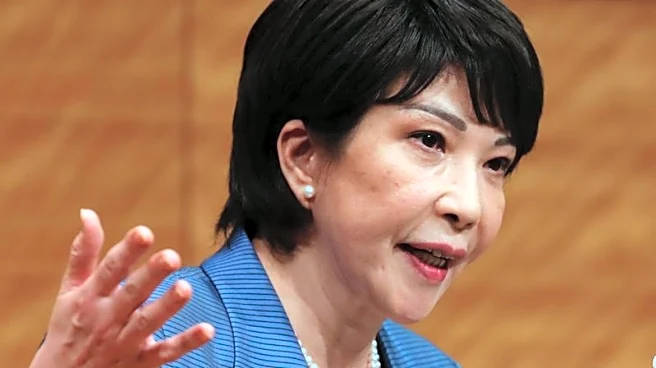What's Happening?
David Richardson, the acting administrator of the Federal Emergency Management Agency (FEMA), has resigned after six months in the role. Richardson's tenure was marked by controversy, particularly regarding
his handling of the catastrophic floods in Texas that resulted in over 130 deaths. Criticism arose due to his absence during the disaster, as he was on vacation at the time. Richardson, who lacked prior emergency management experience, was appointed in May following the departure of Cameron Hamilton. His resignation comes as President Trump has proposed significant budget cuts to FEMA and suggested phasing out the agency after the hurricane season. Richardson stated his intention to return to private industry, citing the end of hurricane season as a suitable time for his departure. Karen Evans, FEMA's current chief of staff, will assume the acting administrator role starting December 1.
Why It's Important?
Richardson's resignation highlights ongoing challenges within FEMA and the broader implications of federal disaster management under President Trump's administration. The agency has faced scrutiny over its effectiveness in responding to natural disasters, which are becoming more frequent and severe due to climate change. The proposed budget cuts and potential phasing out of FEMA could shift disaster response responsibilities to individual states, raising concerns about their capacity to handle large-scale emergencies. The criticism from FEMA employees and Democratic lawmakers underscores the need for experienced leadership in managing national disaster preparedness and response. Richardson's departure may prompt discussions on reforming FEMA to better address future challenges.
What's Next?
With Richardson's resignation, FEMA will undergo a leadership transition as Karen Evans steps in as acting administrator. The agency may face further scrutiny and pressure to improve its disaster response capabilities. The Trump administration's plans to overhaul FEMA could lead to significant changes in how disaster management is conducted at the federal level. Stakeholders, including state governments and advocacy groups, may push for reforms that ensure effective and timely responses to emergencies. The ongoing debate over FEMA's role and budget will likely continue, influencing future policy decisions and legislative actions.
Beyond the Headlines
The resignation of Richardson and the criticism of FEMA's response capabilities highlight broader issues in disaster management, including the impact of climate change on the frequency and intensity of natural disasters. The debate over federal versus state responsibility in disaster response raises questions about resource allocation and preparedness. Ethical considerations regarding the appointment of leaders without relevant experience also come to the forefront, emphasizing the need for qualified individuals in critical roles. The situation may lead to long-term shifts in how disaster preparedness and response are structured in the U.S.












